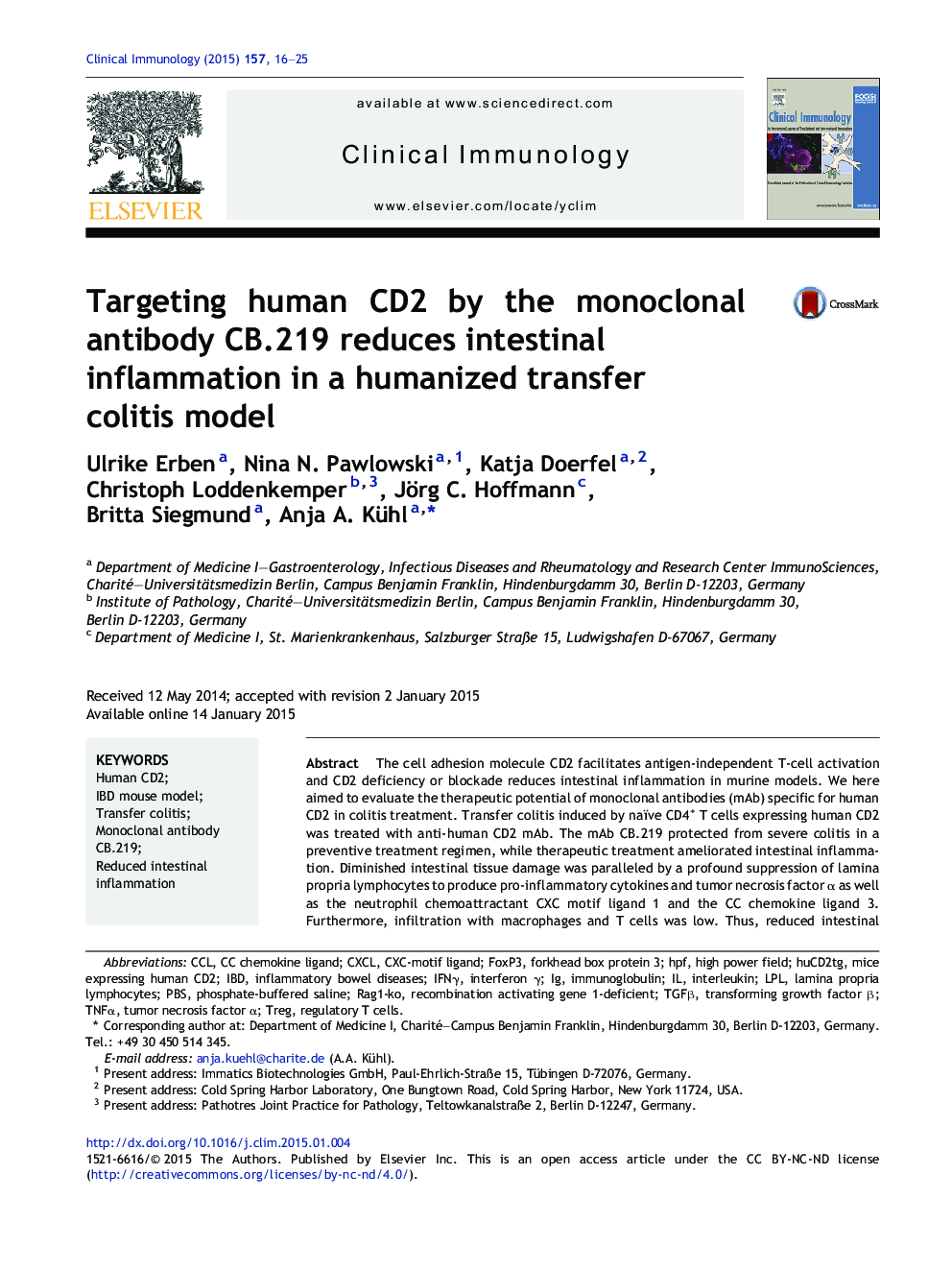| Article ID | Journal | Published Year | Pages | File Type |
|---|---|---|---|---|
| 6087330 | Clinical Immunology | 2015 | 10 Pages |
The cell adhesion molecule CD2 facilitates antigen-independent T-cell activation and CD2 deficiency or blockade reduces intestinal inflammation in murine models. We here aimed to evaluate the therapeutic potential of monoclonal antibodies (mAb) specific for human CD2 in colitis treatment. Transfer colitis induced by naïve CD4+ T cells expressing human CD2 was treated with anti-human CD2 mAb. The mAb CB.219 protected from severe colitis in a preventive treatment regimen, while therapeutic treatment ameliorated intestinal inflammation. Diminished intestinal tissue damage was paralleled by a profound suppression of lamina propria lymphocytes to produce pro-inflammatory cytokines and tumor necrosis factor α as well as the neutrophil chemoattractant CXC motif ligand 1 and the CC chemokine ligand 3. Furthermore, infiltration with macrophages and T cells was low. Thus, reduced intestinal inflammation in our humanized colitis model by targeting CD2 on T cells with the mAb CB.219 suggests a novel approach for colitis treatment.
